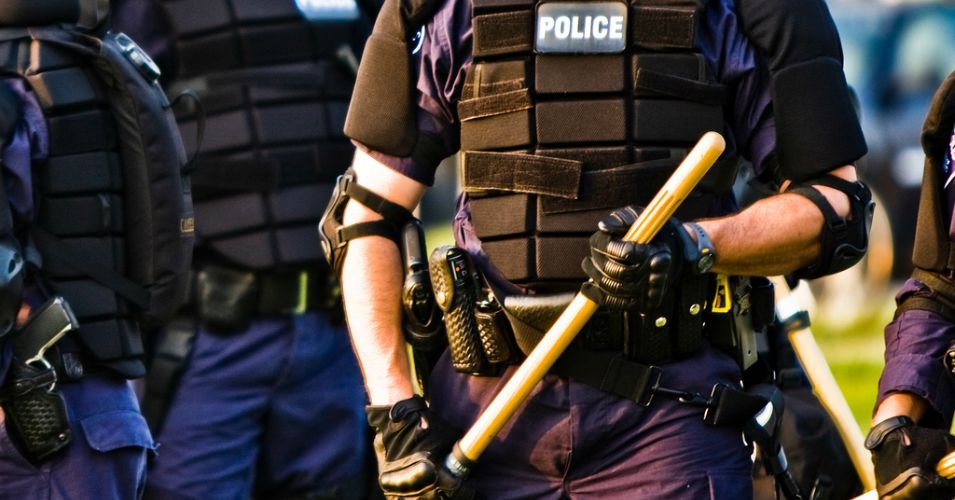

DAs, Attorneys General and law enforcement leaders tell the PA Supreme Court that the police should not be allowed to use deadly force on people fleeing arrest who are not dangerous
by Vanguard Staff
Pennsylvania – In the year following the death of George Floyd at the hands of Officer Derek Chauvin, the public has had an increased awareness of officers who have needlessly inflicted violence on residents without fear of consequences. Some leaders have now stepped up to attempt to hold police accountable for the use of deadly force.
On Thursday, a bipartisan group of 68 current and former elected prosecutors, Attorneys General and law enforcement leaders from around the nation filed an amicus brief in the Pennsylvania Supreme Court arguing that the state’s use of force statute must be applied in accordance with the U.S. Supreme Court ruling in Tennessee v. Garner, which held that officers may not use deadly force when a person is fleeing unless they present an immediate threat of serious harm or death to the officer or others.
“The case before this Court presents the important question of whether Pennsylvania law allows officers who cause serious harm to avoid consequences,” the brief argues. “This case has enormous implications for how the public views officials within the criminal justice system – and the legitimacy and fairness of the system itself. It involves the intersection of the Pennsylvania statute justifying police use of deadly force when making arrests, and the constitutional limits on that force.”
The brief urged the court to rule that that the Pennsylvania use of force statute must be read in accordance with Supreme Court precedent, which requires there to be an imminent threat of  death or injury before officers can use deadly force against people trying to evade arrest.
death or injury before officers can use deadly force against people trying to evade arrest.
As noted in the brief: “Holding otherwise would allow police to kill without consequence, even when there is no reasonable risk of death or bodily harm. Such a result would both pave the way for the unconscionable use of deadly force and risk undermining community trust in the justice system.”
“The American system of policing has given broad protection to officers for far too long, allowing some to take life and liberty from thousands of people, disproportionately people of color, under deeply troubling circumstances,” said Miriam Krinsky, a former federal prosecutor and Executive Director of Fair and Just Prosecution, the organizer of the brief.
She said, “Our communities rely on elected prosecutors and the courts to ensure that accountability transcends a title and a uniform. Continuing to provide cover to those police officers who abuse their authority would damage already fragile bonds of trust between law enforcement and the communities they serve, and thereby threaten public safety.”
“When a prosecutor has probable cause that anyone — including a police officer — has violated the law, prosecutions must be vigorous, visible and swift. No law should unconstitutionally shield a law enforcement officer from prosecution for unlawful use of deadly force. No one is above the law, and no one is beneath it,” said Minnesota Attorney General Keith Ellison, a signatory to the brief.
Other signatories to the brief include Attorneys General Thomas J. Donovan, Jr. (Vermont), Karl Racine (District of Columbia) and Ellen Rosenblum (Oregon), the Law Enforcement Action Partnership, over a dozen current or former Police Chiefs and Sheriffs and dozens of DAs and States Attorneys from around the nation.
In the brief, the criminal justice leaders explain that a “decision sanctioning law enforcement killing of people who pose no physical danger” would undermine trust in the criminal legal system and make it less likely that people in the communities most impacted will turn to law enforcement after a crime has occurred and cooperate with investigations. As amici note, “By employing an unconstitutional and overbroad approach to justifying the use of deadly force, this Court would create the appearance that it does not value its role in protecting the public against governmental abuse.”
“As a law enforcement leader, I know firsthand that police accountability is critical to building trust with the communities we serve and that this trust is integral to promoting public safety,” said Darrel Stephens, former Police Chief of the Charlotte Mecklenburg, N.C. Police Department and former Executive Director of the Major Cities Chiefs Association . “In order to establish confidence in law enforcement and in the criminal legal system, we must ensure that our policies and laws allow for officers to be held responsible for egregious misconduct that causes serious harm to the people and communities they are entrusted with protecting.”
Read the brief here and see below for a complete list of amici.
